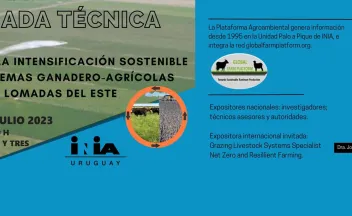Diversidad de escarabajos depredadores en rotaciones arroceras y su posible rol como bioindicadores.

En este artículo se presenta un estudio que analizó el efecto de distintos tipos de rotaciones arroceras, con pasturas y otros cultivos como soja, sobre la diversidad alfa (referido a la diversidad a nivel local) y beta (que evalúa la composición de especies entre localidades) de carábidos, así como su posible rol como bioindicadores en dichas rotaciones.

